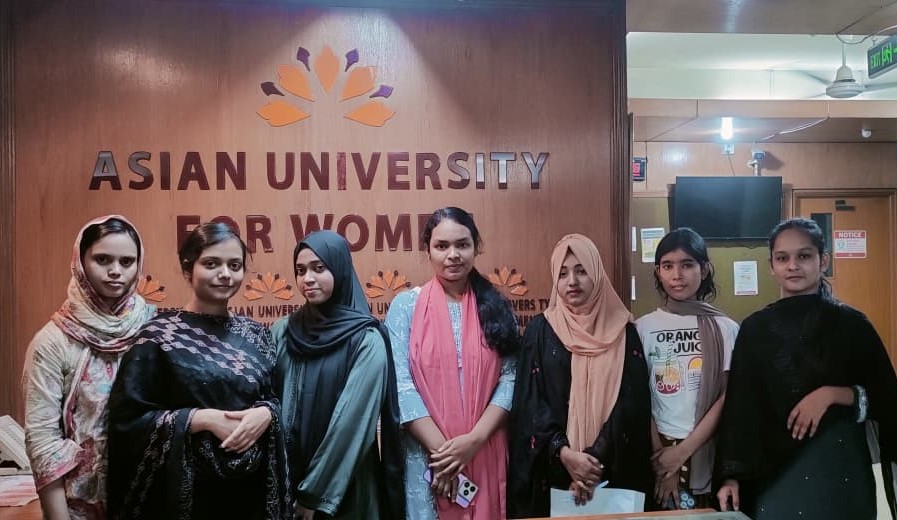A Word to the Wise
Nestlé Bangladesh was recently awarded the best MNC at the Bangladesh Supply Chain Excellence Awards (BSCEA) 2018 in Supply Chain Relationship Management category. How have you maintained and expanded your pool of farmers? What are the challenges in maintaining a completely local manufacturer and procuring the maximum output?
Bangladesh Supply Chain Excellence Award (BSCEA) is a joint Initiative between Bangladesh Supply Chain Management Society (BSCMS) and IPDC Finance. This award was the first of its kind and there were several categories. One of the categories was ‘Supply Chain Relationship Management’ and Nestlé Bangladesh won excellence award in that category. However, let me explain first what supply chain relationship management really is. Supply Chain is an integrated chain of Business processes starting from consumers and ends at consumers, which means the process starts with capturing right consumer insights & demand and ends with fulfilling that demand in time for the consumers. In this whole value chain, relationships and collaborations are the cornerstones of each stage, which might be internal as well as external. Also, it’s crucial to manage the right collaboration and relationship between internal and external stakeholders both vertically and horizontally.
Nestlé Bangladesh is involved in producing packaged foods with ‘Farm to Fork’ integrated value chain approach. It starts with farmers, who produce the raw materials complying with all the food safety norms to supply us as per Nestlé’s uncompromising international quality standards. We procure those raw materials ensuring our specifications, store them in a proper storage condition to produce at a later date and ultimately deliver it to consumers with global quality standards. Throughout the entire process of the value chain from ‘Farm to Fork’, we ensure compliance, global food safety, and quality standards. At the raw material sourcing stage, we work with the farmers to guarantee that the products are meeting our quality specifications. A good example would be the rice that we procure from local sources produced by Bangladeshi farmers. To get the products as per our specifications, we collaborate with rice millers and farmers in the area that we have earmarked. In these regions, we regularly check the soil for heavy metals and provide training to the farmers on the best agricultural practices. This is, in fact, a win-win situation for both. We’re helping farmers to develop the knowledge and skills, giving them a fair price while we are getting high-quality inputs. We’re maintaining a relationship and collaborating with our ‘Customer Facing Supply Chain’ program with distributors and retailers to ensure compliance and global quality standards products are delivered to the consumers. This is really a great example of a sustainable model of collaboration and relationship management. As Nestlé Bangladesh has been consistently delivering on their promises with ‘Good Food, Good Life’ tagline, their efforts were recognized by BSCEA 2018.
As for the expansion of the pool of farmers, we are now looking to enter into local sourcing of spices meaning continued collaboration with the community of millers and farmers for mutual benefits.
However, the challenges of having completely local sources are many folds. In Bangladesh, the challenge of securing Nestlé quality standard input is a real task, which we’re trying to manage through responsible sourcing strategy. Our supplier has to be compliant and also we work with them to develop to get supplies as per our quality specifications. A secondary challenge would be our underdeveloped infrastructure and logistics issues, which contribute to a huge lead time and increased cost.
You have stated that multinational companies have better Supply Chain Management (SCM) than the local ones. How can we improve management in the context of the national scene?
MNC’s are maintaining global standards and they follow the best global practices. Bangladesh might be a small country but we have a market of 160 million people and developing fast to be a middle-income country by 2021, and developed country status by 2041. Global companies maintain the same standards in every country. To increase our competitiveness efficiency and responsiveness, we need to adopt global standards and a developed SCM process would be a competitive advantage.
Most of the local companies are lagging behind simply because the entrepreneurs are still unaware of the many benefits of an efficient SCM system. Fortunately, I see that this trend is changing rapidly and firms are making active efforts to educate themselves and train themselves on SCM. Some of the local companies like ACI, BSRM, Square, Beximco and so on, are following good processes of SCM and trying to upgrade their system following the best practices. I hope that other local companies will soon catch up because it is a need of the hour and not just an option.
Why is blockchain technology imperative in improving supply chain management?
In SCM, we have an integrated value chain process. To maintain this value chain process properly there needs to be a control mechanism in each step. To have this control mechanism and ensure productivity and quality standards and maintain a smooth flow of payments to suppliers we need to follow certain compliance and regulations. The blockchain technology allows us to have a more controlled environment, to reduce the time wasted in manual administration work and inevitably lessen wastage.
With the help of blockchain technology, we can automatically control payment to the suppliers and others within a set time limit. Thus for an integrated supply chain system, this is of the utmost importance.
You have lamented about the absence of educational institutions dedicated to teaching SCM and Logistics support. How has this impacted the firms heavily dependent on SCM? What role can organizations such as ISCEA play for the logistics industry?
This question is very relevant to the context of Bangladesh, where we are in dire shortage of skilled manpower in the field of SCM and Logistics. Our local universities and colleges do not have curriculums dedicated to this industry or even if they do provide, it is in a very rudimentary stage. In short, the education system needs to update itself to cater to the industry demand. The current situation also explains the shortage of skilled professional in the SCM field. We can then bridge the gap between industry and academia further by providing on the job training through workshops and seminars.
ISCEA is an international organization that provides certification on SCM so of course, they play a vital role in determining the existing skill set among the professionals. Some of their graduates have performed well, not only in Bangladesh but abroad as well. This by no means replaces the training that a proper university curriculum will provide.
In your opinion, what changes are absolutely imperative to further improve the logistics industry of Bangladesh? As the President of BSCMS what lasting impact/change would you to see in the SCM industry?
As the President of BSCMS, I must emphasize the need for education focused solely on the SCM sector. We need to develop our human resource to match the development rate of Bangladesh, while at present there’s a stark discrepancy between the two. Our government is setting up 100 new Special Economic Zones (SEZ) and we need to develop ourselves to cater to the level of investments expected in the coming years. As a reference point, I want to point out that our economy is growing more than 7% consistently.
Let’s not forget our need for a better infrastructure system the lack of which has hindered our growth previously. The government has taken many initiatives to further both the educational and infrastructural needs through megaprojects. These projects need to be prioritized and put on a fast track. For instance, we do not yet have a deep sea port and the Chittagong and Mongla port are still quite underdeveloped. So while challenges exist, they can well be overcome through our continued efforts.
And the lasting impact that I would like to see is the entrepreneurs having a better understanding of SCM industry which will help them develop a proper SCM system for their companies. Some companies might have bits & pieces of the SCM system; procurement logistics and distribution etc. But a fully integrated SCM system is still missing.
The most important integration is between supply and demand. Most people miss the fact that a supply chain system should start with consumers and end with consumers. In other words, we need to understand consumer demand and build our response to that demand accordingly. A mismatch between the consumer demand and manufacturers supply is fatal for any firm.















